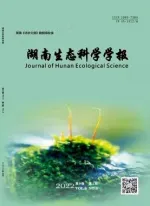中职学生英语语法错误及其原因分析
2013-08-15许桂民
许桂民
(广州市医药职业学校,广东 广州 514300)
错误分析理论是英国应用语言学家Corder 于1967 年提出的.对此理论的研究主要建立在行为主义理论基础上.行为主义理论把语言看做为一套习惯.在学习新的习惯(目的语)时,旧的习惯(母语)根深蒂固地会对其产生影响.这种影响被称为“迁移.”对目标语学习有促进作用的影响称为“正迁移”,有妨碍作用的影响称为“负迁移”,学生的错误便是“负迁移”的产物.但“正”“负”迁移是可以相互转化的.错误如果得到及时纠正,负迁移便可转化为正迁移,从而对语言学习起到促进作用.因此,从行为主义理论角度看,研究学生语言学习中的错误意义有三.第一,告知教师,如果进行系统的错误分析,就会知道学生离语言学习的目标还有多远,还要学哪些.第二,给研究语言是怎样习得的、语言学习过程中中使用了哪些策略和程序的研究者们提供研究依据.第三,在某种意义上也是最重要的方面,和学习者本人密不可分的,因为错误是学习者运用语言的一种方法,也是检验对他正在学的语言本质的假设的一种方法.错误分析既是孩子们习得母语,也是成人习得二语所使用的重要策略.
1 中职学生的英语语法错误
广州市医药职业学校是医药职业学校,学生的英语基础较差,英语书面表达更是错误连篇,有拼写错误、用词不当、意义表达不清、结构不行等等,最突出和严重的是语法错误.可以说,很难找到一句没语病的句子.为此,根据我校20 个受试学生的书面表达(Can money buy happiness?)罗列他们常犯的八类语法错误.需说明的是,为了错误归类的顺利,不少句子部分改正过了的.即使是这样,挑出来的这些句子中有些在意义表达上存在问题,该文只就句子中的语法错误作分析.
1.1 词性功能紊乱
不同词性的词各司其职.一般来说,名词和代词可作主、宾、表语,动词作谓语,形容词作定语、表语、补语,数词可作定、主、宾、表语,副词作状语,介词后接名词、代词,若把名词、代词、形容词、数词、副词、介词作谓语,那就是词性功能混乱不清了.
(1)Busy making money will sometimes make you tired.(Being busy......形容词短语作主语)
(2)We must friendly to others.(be friendly,形容词作谓语)
(3)Without money is possible.(No money,介词短语作主语)
(4)They sure they have many friends to share happiness and sorrow.(are sure,形容词作谓语)
(5)They are the most happiness people in the world.(happy,名词作定语)
(6)You can very sad.(be very sad,形容词短语作谓语)
(7)Happiness doesn't like the goods from the supermarket.(isn't like,介词作谓语)
(8)They have no communicate with money.(communication,动词作宾语)
(9)The little can be cured and his family can back to happiness.(be back,副词作谓语)
(10)No one gets touch with them sincerity.(sincerely,名词作状语)
(11)When you relatives were sick,you can support them a good hospital.(your,代词作定语)
1.2 不一致性
不一致性包括主谓不一致、名词单复数不一致、主从复合句时态不一致、结构的不一致.如主语是三人称单数时,谓语动词要加S;可数名词单数前要加不定冠词a(n),复数要加S;主语和宾语或表语结构平行、一致.
(1)Many people with a lot of possession don't live a happy life.(possessions)
(2)A rich couple is quarrelling every day.(are)
(3)It should depend on how he spend money.(spends)
(4)To such question,my answer is that money can buy happiness.(a question)
(5)The rich person want to buy the poor person's health.(wants)
(6)Every coin has two side.(sides)
(7)The stress become more and more.(becomes)
(8)There are no smile.(smiles)
(9)I firmly believe that happiness exist in my mind.(exists)
(10)The man who are kindhearted and hardworking can get it.(is)
(11)He think his life is miserable.(thinks)
(12)Money are not everything.(is)
(13)Some of them did not have a real friends.(real friends)
(14)He said he will go home soon.(would)
(15)To see is believing.(Seeing 或to believe)
(16)Knife should be taken away from babies.(knives)
1.3 动词的时态、语态
时态是表示动作发生的时间.动词时态是中职学生英语学习的最难点,也是出错率最高的地方.动词时态共有16种,语态只有主动和被动2种,主动语态表示主语是动作的发出者,被动语态表示主语是动作的对象.但是语态学习中,学生要记住,不及物动词没有被动语态,只有及物动词才有被动语态.
1)时态
(1)The time will never came back.(come)
(2)It's do great harm to health.(does)
(3)Happiness is really exist in our life.(exists)
(4)The only thing after he open his eyes is to think about how to earn money.(opens)
(5)He have hear the story twice.(has heard)
(6)These men didn't had much money.(didn't have)
(7)She saw me twice.(has seen)
(8)They go shopping yesterday.(went)
(9)We sit here now.(are sitting)
(10)We are liking rabbits.(like)
(11)Li Bai is the famous poet of ancient China.(was)
(12)The king give him money to stay in the palace.(gave)
(13)As we all known,money is very important.(know)
2)语态
(1)The beggar was died at the roadside.(died,vi)
(2)The car accident was taken place at the junction of two highways.(took place,vi)
(3)The story was happened long long ago.(happened,vi)
(4)I watched him until he was disappeared.(disappeared,vi)
(5)New bicycles must keep inside.(be kept)
(6)The money has to return to the bank someday.(be returned)
(7)The food has cooked.(has been cooked)
(8)The book is sold well.(sells,此句为vi)
(9)I seated beside her.(was seated)
(10) Happiness can't buy with money.(be bought)
(11)When you feel sad,you could have someone to be listened to you.(listen)
1.4 成分残缺或混乱
句子成分残缺指的是句子缺主语、谓语、宾语、表语或引导词等.
(1)As I have found much evidence to prove that money can't buy happiness.(只有从句,缺主句,应将As 去掉)
(2)When you shopping,you are happy.(are shopping,缺谓词)
(3)Even if you have much money is meaningless.(it is,缺主语)
(4)There is a story is about money.(去there is或去后一个is,一句两谓)
(5)There are some people do not have much money.(一句双谓,去There are 或在do 前加引导词who)
(6)Money just a requirement.(缺谓语,just 前加is)
(7)We also can happy.(be happy,谓语不全)
(8)A person who have nothing but health.(只有主语,去掉who 后把have 改为has 或另补全谓语部分)
(9)So why people nowadays seeking for richness?(缺助动词,在why 后加are)
(10)A family,their happiness comes from harmony.(主语混乱,A family's)
(11)It easy to see that money is not the whole thing in our life.(缺谓语,is easy)
(12)We living in the world.(缺谓语,are living)
(13)We need money buy things.(一句双谓,to buy)
(14)They still living an unhappy life.(缺谓语,are still living)
(15)We can become rich depend on our own efforts.(一句双谓,by)
(16)Always compare with others.(缺主语,加复数人称主语)
1.5 搭配不当
搭配不当包括词、词组或短语搭配不当,如单位词、情态动词、动宾词组、介宾词组、动词短语、介词短语、than 前用比较级等搭配不当等.
(1)Money can brings all.(bring)
(2)You need not to worry about your basic living.(don't need to worry 或needn't worry)
(3)You can enjoy the happiness of help others.(helping)
(4)I want to be superior than others.(more superior)
(5)Money can add happiness but can not create happiness.(add to)
(6)They cares nothing unless earn money.(care for nothing but)
(7)In our daily life we can always heard somebody complaint about his money is not enough.(hear)
(8)She smiled at first,then burst out cry.(crying)
(9)The parents are busy with making money.(in)
(10)I have no money for take part in activities.(taking)
(11)My teacher explained me the text very carefully.(explained......about)
(12) God endows us healthy body.(endows......with)
1.6 中国式英语
由于受母语的干扰,学生们常常会写出high 3(高三),表妹(watch sister)这样令人啼笑皆非的中国式英文表达.学生在这方面的错误主要是根据中文思维逐词逐句地翻译,以下错句同出一辙.
(1)The money came from all directions standed for Chinese warm heart.(钱来自各方代表了 中国人的热心)
(2)It can't represent money can buy everything.(它不能代表钱能够买一切)
(3)Love stands for pay off.(爱代表付出)
(4)They have a good body.(他们有个好身体)
(5)Our food,clothes,house,car,all need money to buy.(我们的食物、衣服、房子、车子所有的需要钱买)
(6)Happiness is not only need money.(幸福是不仅需要钱)
(7)He thinks people around him is want to cheat him.(他认为他周围的人是想欺骗他)
(8)I think money can't buy happiness.(英语里think 宾语从句的否定必须前置)
(9)He work often very busy.(他工作经常很忙)
(10)I know money smells bronze.(我知道钱散发着铜臭味)
1.7 过度规则化
规则要学,但任何规则都有其例外.如果把规则扩大到例外的情况上,那就是过度归纳或过度规则化.如形容词比较级,动词的过去式和过去分词,名词的单、复数,动词的三人称单数等.
(1)When you wear beautiful clothes,you will be look like more pretty.(prettier)
(2)He was writting a letter to his parents.(writing)
(3)Money can send his childs to college.(children)
(4)We boys like to be policemans.(policemen)
(5)He drinked bottled water.(drank)
(6)It makes people to crime.(crime)(由ask sb.to do sth.类推)
(7)I insist to say money can't buy happiness.(on saying)(由hope to do sth.类推)
(8)She suggested us to go to the park.(going)(由tell sb.to do sth.类推)
(9)He is more cleverer than his classmate.(cleverer)
1.8 引导词用错
(1)You can do anything what do you want to do.(that)
(2)Although they have a lot of money,but it can't buy happiness.(Although 和but 只能留一个)
(3)How do you know they love your money or wealth?(they 前加whether)
(4)Even they have a lot of money,the money cannot buy the time they wasted.(Even if)
(5)Many people can easily find it,many people can't see it.(第二分句前加but)
(6)Happiness is something need to be created by ourselves.(that needs)
以上对语法错误的总结主要归为八类,事实上语法方面的错误还不止这些方面,如虚拟语气错误,代词所指不一致和代词的格混用,几个动词堆一块,成分多余等.另外在错误分类中,有时即可以列为这一类,又可列为那一类,主要根据错误的特点来的,如They parents are busy with making money和A family,their happiness comes from harmony 两句,既可以说是Chinglish,又可以说是词性功能紊乱,还可以说主语成分混乱不清.鉴于篇幅,只归为其中一类.
2 原因分析
2.1 语际错误—母语的干扰
自出生起,母语就在脑袋里扎了根.当学习外语单词时,学生总要依靠其中文意思才能领会和记住它.学英语句子时,学生也总喜欢把它和中文的语法规则加以比对.由于语言的共性和差异性,当中英两种语言的规则一致时,这种比对会生成正确的句子,这就是前文所说的正迁移,对语言学习有促进作用;但当两种语言的规则不一致时,这种比对就会生成不合英语语法的Chinglish 句子,这就是负迁移,对语言学习有干扰作用.中文里,动词没时态之说,名词没有单复数形式,主语是三人称单数时动词也没变化,同一个词的名词和动词都是一个形式,而在英语里英语时态16种之多,名词有单复数之分(datum,data),动词的三人称单数后加S(He thinks...),同一意义而不同词性有不同的词形(originate,original,originality)等等.正因为学生对语言的差异性掌握不够,所以才生成不合语法的句子来.
语际错误,说白了,是中西两种思维模式的差异.所以,教师要提醒学生养成用英语思维的习惯.
2.2 语内错误—规则的放大
学习者经过一段时间的学习,对目标语获得了一定的知识积累.在语言产出的过程中,往往根据逻辑推陈出新,但是任何规则都有例外,由于没掌握规则中的例外,于是犯了放大规则的语内错误.这就是语言学中所说的过度规则化(overgeneralization).例如:(1)名词复数,由two rooms,two cars 推出two sheep,two fish,two knifes(2)形容词、副词比较级,more nicer(把用于多音节形容词比较级的more 用到了单音节形容词比较级前),more pretty(prettier,prettiest)双音节形容词和副词的比较级和最高级,有部分随单音节形容词和副词,有部分随多音节形容词和副词的.(3)动词过去式和过去分词,由worked 推出teached(taught),shooted(shot),sitted(sat);由blow(blew,blown)推出flow(flew,flown).(4)由tell sb.to do sth./ ask sb.to do sth.推出make sb.to do sth./ let sb.to do sth./ suggest sb.to do sth./ remind sb.to do sth./ mind sb.to do sth.
以上分析的是语内干扰、语际干扰两大主要原因,实际的语言学习中,也可能由于别的因素的干扰而写出不合语法的句子,这就有待进一步的研究和挖掘.
3 结语
对于学生中出现的这些语法错误,教师应该持宽容的态度,告知他们犯错是语言学习中很自然和难免的,不要一出现错误就厌烦,盯着不放,责备学生这个知识点没掌握,给学生造成心理压力.同时也要告知学生重视这些错误,努力纠正他们.另外老师教学中也要积极地采取委婉的纠正策略,如面批时,带着微笑重复这个句子“A rich couple is quarrelling everyday.”并将is 重读予以暗示,学生自己就可能将错误纠正过来,尝到成就感.
总之,语法错误是任何语种学习面临的大问题,只有不断地纠正错误,学习者才能不断取得进步,才能产出地道的目标语句子和篇章来,教师教学也才更具针对性.
[1]Corder,S.P.The significance of learners' errors[J].International Review of Applied Linguistics,1967,(4):135-140.
[2]Ellis,R.The Study of Second language Acquisition[M].Shanghai:Shanghai Foreign Language Education Press,1994.
[3]束定芳,庄智象.现代英语教学—理论、实践与方法[M].上海:上海英语教育出版社,1996.
[4]文秋芳.英语学习策略论[M].上海:上海外语教育出版社,1996.
[5]徐天舒.错误分析与口语教学中的纠错策略[J].西南交通大学学报(社科版),2003,4(4):88-90.
